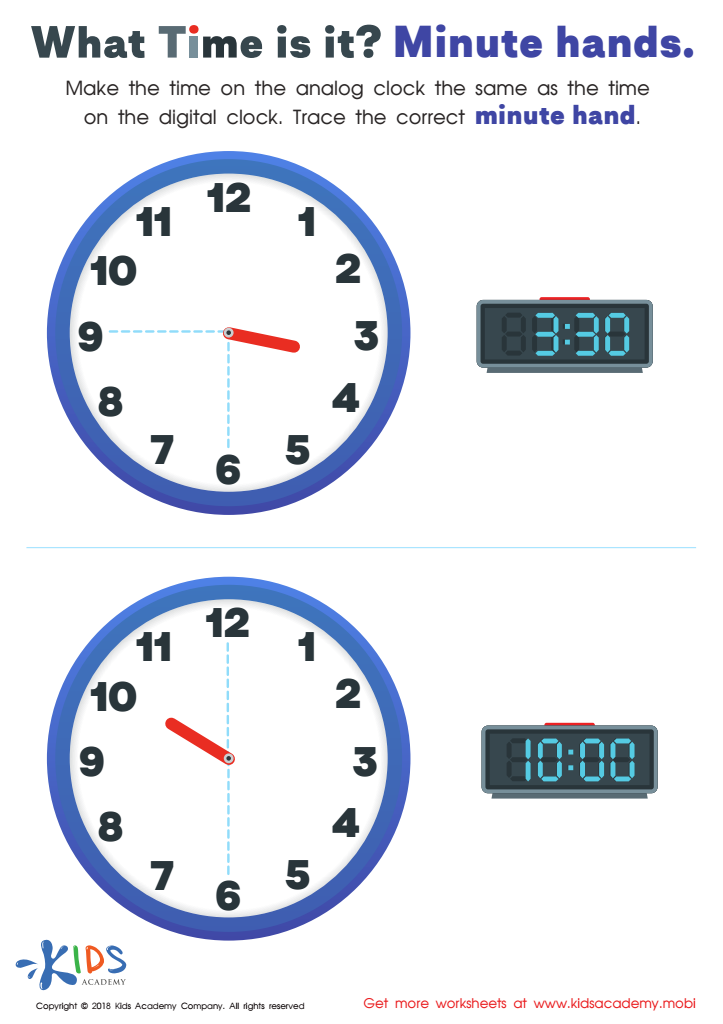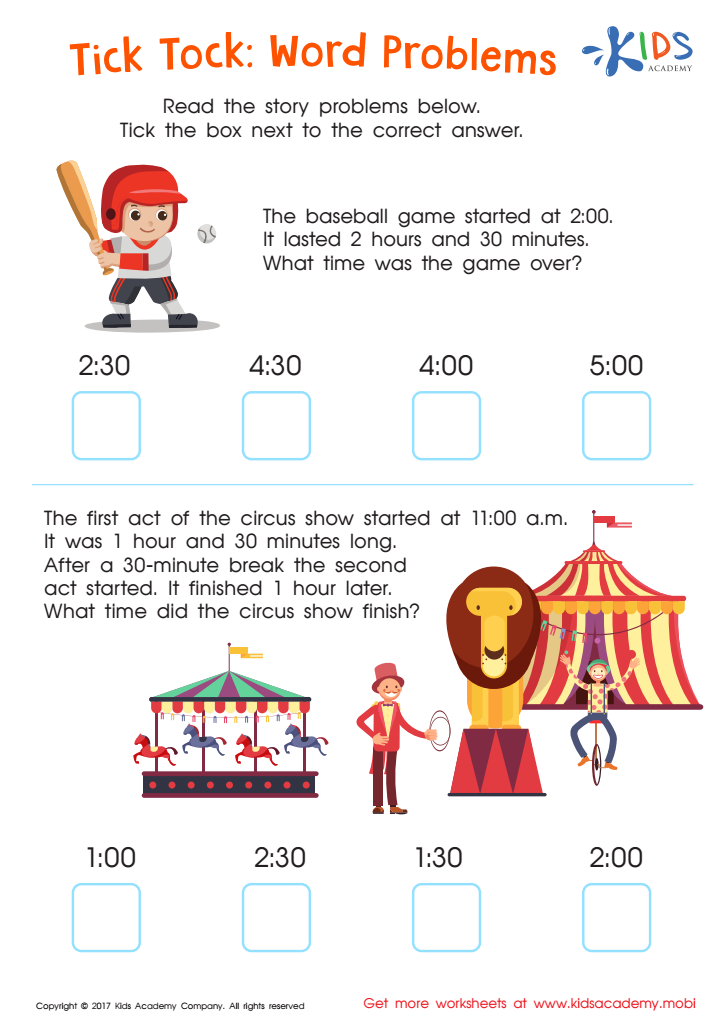Time calculation skills Math Worksheets for Ages 6-7
3 filtered results
-
From - To
Boost your child's confidence in time-telling with our engaging Time Calculation Skills Math Worksheets for Ages 6-7. Designed by educators, these worksheets offer a variety of fun activities to help kids master reading clocks, understanding hours and minutes, and calculating time intervals. Through colorful illustrations and interactive exercises, children will build essential time-telling skills, enhancing their mathematical abilities and daily routines. Perfect for classroom use or at-home practice, our worksheets aim to make learning time an enjoyable and rewarding experience. Explore today to watch young learners' confidence soar in reading and calculating time!


What Time Is it? Minute Hands Worksheet


Tick Tock Word Problems Time Worksheet
Parents and teachers should care about time calculation skills for children ages 6-7 because this foundational ability deeply impacts their daily lives and future learning. Understanding time helps children develop a sense of daily routine and structure, crucial for fostering responsibility and time management skills. When kids grasp the concepts of hours, minutes, and sequencing events, they can better navigate transitions, follow schedules, and anticipate what comes next, all of which contribute to a sense of security and independence.
Additionally, time calculation is closely linked with other fundamental math skills such as addition, subtraction, and number sequences. Learning to tell time reinforces counting by 5s, understanding half and quarter hours, and the concept of elapsed time. These skills boost their overall math competence, laying the groundwork for more complex arithmetic and problem-solving tasks they will encounter later in their education.
Moreover, time calculation has practical applications beyond the classroom. It helps children understand the importance of punctuality and timing in day-to-day activities like getting ready for school, meeting deadlines, or even maximizing playtime. By mastering these skills early on, children enhance their academic abilities and gain essential life skills, setting a strong foundation for future success.
 Assign to My Students
Assign to My Students


















